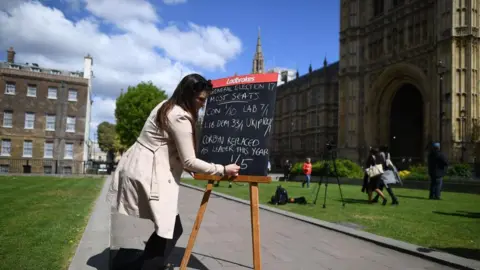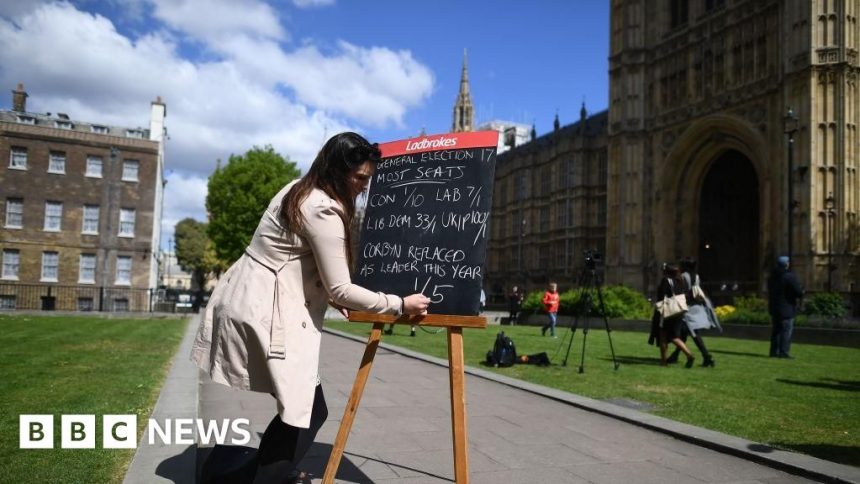Election betting claims put focus on who knew what and when
 Getty
GettyThe revelations we have reported in the last few days about (at least) four people being looked into by the Gambling Commission over alleged bets relating to the timing of the general election has got me thinking.
It has got me thinking about who knew what and when about when the election might be called.
Full disclosure: I wish I had known sooner than I had, because if I had, I would have told you about it.
Just a day or two before, I had breakfast with a very senior Conservative figure, where much of the conversation was based around an assumption the election would be in the autumn.
With hindsight, I think my companion knew more than they were letting on, but there was no hint of this whatsoever.
But by the evening of the night before, I was beginning to hear from all sorts of folk in and around government that “something weird is going on at the centre”, as it was put to me at the time.
This was consistent with Downing Street building up to something they had told barely anyone about.
To be clear, the people I was hearing from didn’t know for certain an election was about to be called, but they were increasingly suspicious something was up.
And, as the evening of Tuesday 21 May trundled on, I was becoming increasingly suspicious too.
The morning after, when I was sitting at my desk at home at around 7am and making my usual round of phone calls to all sorts of folk in Westminster, a clump of people at the heart of government were not picking up, nor returning calls.
It all added up to enough of a raised eyebrow for me to go on the Today programme just before 9am and say that, while previous bouts of election speculation had not moved me much, this time I was jittery.
By 5pm, I was soaked through, standing in Downing Street watching the prime minister make his announcement.
In other words, in a postcode where keeping a secret isn’t easy and gossip is the currency of exchange, not many people knew what the prime minister was planning.
The essence of that day’s story was surprise.
But perhaps not for everyone.

The Gambling Commission tells us it “is investigating the possibility of offences concerning the date of the election. This is an ongoing investigation.”
We now know there was an unusual surge of betting on a July election just before Rishi Sunak confirmed just that.
Data given to the BBC by Smarkets betting exchange shows odds shortened dramatically on the afternoon of the 21 May, the day before the election was announced.
Separately, a study of Betfair betting odds by the Guardian and the Financial Times found several thousand pounds were wagered the day before the 22 May announcement.
The Smarkets data showed that the number of bets placed on a July election were almost non-existent until 10 May – the week after a disastrous set of local elections for the Conservatives.
Then on Smarkets, the odds of a July election surged from 18% to 28%, the largest single-day change since the market had opened.
The trend persisted, and the odds hit 95% just two hours before the formal confirmation.
The political betting market is a miniscule slice of the £15.1bn-a-year UK gambling market.
Its small size means that events like a £100 bet or a popular article can drastically sway the market.
We now wait to see the outcome of the Gambling Commission’s work.
More than four weeks on from us all learning when the general election would be – and less than a fortnight from polling day – allegations around some of those who are suspected of knowing something in advance continue to make headlines.
And there may be more to come.







